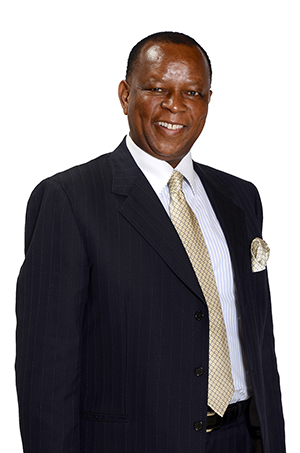
Mr Ntsele
Photo: Stephen Collett |
To call Mr Ndaba Ntsele just a businessman seems like a bit of an understatement. The Executive Chairman and co-founder of Pamodzi Group Limited lives and breathes business, entrepreneurship, and wealth creation. He is also a member of the Council of the University of the Free State (UFS) since September 2013.
His greatest passion is entrepreneurship, and sharing his ideas of self-employment with young (and old) South Africans. “I preach self-employment wherever I go. Everyone knows that unemployment is a major problem in our country. However, people often expect the government or big corporations to provide them with jobs. I like to influence people to start thinking about working for themselves, thereby creating opportunities for employing others,” he says.
His entrepreneurial drive extends even to his time on the UFS Council. Now in his second term, Mr Ntsele has been well placed to get a sense of the kind of contribution the university and its students could make to South Africa, and even further afield.
“In addition to training students for all the other important industries in South Africa, I think the UFS is ideally situated to create agricultural entrepreneurs. The Free State is one of South Africa’s prime agricultural areas, after all. Food security is an issue worldwide, and it is an area in which we could make a real contribution by training food producers, food technologists, and agricultural specialists. In fact, I think the UFS could become the leading agricultural institution in the country.”
Being the best is something that he strives for continually, while high standards are not something he shirks. In fact, he believes that Council members should hold an institution accountable for maintaining the highest standards possible, whether it is in governance, financials, procurement, or any other areas of importance in an institution.
As the executive chairman of a multi-billion African-owned group with assets across the globe, Mr Ntsele does not have a great deal of free time. However, he enjoys sitting down with MBA students and graduates to share his views about entrepreneurship.
“If I can change their mind-set from ‘others must employ me’ to ‘I need to create my own employment’, then I will feel as if I have accomplished something,” he says.